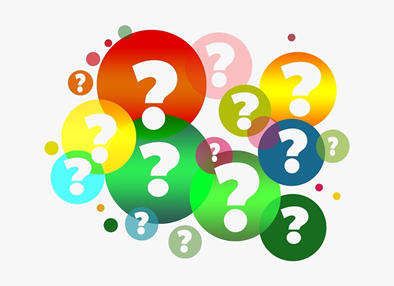Summary
At the heart of student-centered, inquiry-based lesson design are student-generated questions. Not only do student-generated questions help students think of and apply ideas more creatively, but the cognitive processes involved in creating and answering meaningful questions also help students experience learning more authentically. In this collection, you will find professional learning activities, lessons for students, and strategies that you can try in your classroom to help students generate meaningful questions.Resources

Participants will experience a workshop session that provides the fundamentals of Essential Questions. They will then discover how they can use Essential Questions as a focus when lesson planning by creating their own content-specific Essential Questions. Read more »
- All Staff or Teachers, PLC
- Any time of year, Planning/Collaboration/Conference Time, Pre-Service Training
- Medium Group (at least 10)
- Increase Teacher "Toolbox"

This session focuses on using strategies and questioning techniques that will actively engage young students in the learning process. Read more »
- Teachers
- Any time of year
- Large Group (at least 30), Medium Group (at least 10), Small Group, Small Group (at least 4), Whole Class
- Active Engagement, Increase Teacher "Toolbox"
- 5.ek.e, 8.p.g

In this lesson, students make connections between the type of questions one asks about a text and the understanding of that text. Though lower-order questions play a major role in comprehending a text, as students become more comfortable with higher-order questioning, they will use the information they... Read more »
HOT Questions
Creating Meaningful Questions
- 6th - 9th
- English/Language Arts
- 8.1.R.3, 8.2.R.1, 8.2.R.3

Question Generating
- 6th - 12th
This instructional strategy switches the role of “question generator” from the teacher to the student as students use critical thinking to explore a concept by creating and asking their own good questions. Read more »
- Individual, Whole Class
- Engage/Opening, Evaluate/Assessment
- Analyze, Critical Thinking, Recognize
- 6th - 12th

Stoplight Questions
- 5th - 12th
Stoplight Questions help students consider how rigorous their research and inquiry questions are. This strategy equips students to evaluate their questioning for deeper learning. It also helps them internalize what defines a quality research question. Read more »
- Large Group (at least 30)
- Explore/Learning Activity
- 20 - 30 Minutes
- Brainstorming, Research
- 5th - 12th

Five Whys
- 6th - 12th
This problem-solving strategy allows students to analyze a problem in order to find its root cause. Students are prompted to actively reflect on and examine the problem, while teachers passively facilitate. Read more »
- Individual, Whole Class
- Less Than 10 Minutes
- Problem Solving
- 6th - 12th

What? So What? Now What?
- 11th - 12th
Use this strategy as a method of reflection on a lesson, topic, or learning objective. The purpose is to allow students a scaffolding to reflect in a deeper manner than simply recalling what they did. Read more »
- Individual
- Evaluate/Assessment
- Less Than 10 Minutes
- Reflection
- 11th - 12th

5W Cube
- Preschool - 12th
The 5W Cube is a portable strategy to target open-ended questions (beginning with who, what, when, where, why, and how) as a means of exploring content and conversational speech. The 5W Cube helps students formulate questions and foster meaningful connections with content. This strategy can be used... Read more »
- Whole Class
- Engage/Opening, Explore/Learning Activity, Explain/Closing, Extend/Additional Learning Activity, Evaluate/Assessment
- Less Than 10 Minutes, 10 - 20 Minutes, 20 - 30 Minutes, More Than 30 Minutes
- Activate Prior Knowledge, Analyze, Brainstorming, Conversation Starter, Elaborate, Evaluate, Identify, Infer, Interpret, Organize, Recognize, Reflection, Review, Speak & Listen, Summarize, Writing
- Preschool - 12th

I Notice, I Wonder
- 6th - 12th
Students use guided inquiry to create and answer good questions from the information at hand, activating their prior knowledge and engaging them in higher-order thinking. Read more »
- Whole Class
- Engage/Opening, Explore/Learning Activity, Explain/Closing
- 10 - 20 Minutes
- Activate Prior Knowledge, Collaborate, Critical Thinking, Hypothesize, Identify, Infer, Reflection, Speak & Listen
- 6th - 12th
This work is licensed under a Creative Commons CC BY-SA 4.0 License.
Report copyright infringement »

